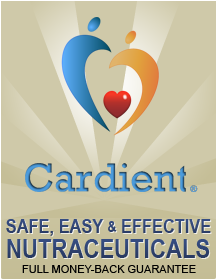Complications that can be avoided WITH VASCULEX
A COMPENDIUM OF CONDITIONS AND DISEASES THAT CAN BE PART OF YOUR PROBLEM.
Coagulation
PAI-1, tPA, Plasmin, Thrombin, prothrombin, Factor V Leiden, Factor VII, TF, Factor VIII, Factor IX, Factor X
Platelets increased and aggregate more, sticky platelets, clumpy platelets
Fibrinogen and D-Dimer Fibrinogen split products
Leg thrombus, leg blood clot, leg swelling
Artery thrombus, low blood flow in the lower limbs or legs, cold feet, discolored feet.
Peripheral arterial disease, discolored legs or feet, painful calf, muscle stiffness
Stroke Brain infarct, speech change, loss of muscle function
Pulmonary Embolus or PE
Thrombosis with cancer, stomach cancer, pancreatic cancer, prostate cancer, colon cancer, uterine cancer, cervical cancer
Inflammation
Inflammation artery or vein, Inflammation of the heart, Inflammation of liver, Inflammation of spleen, Inflammation of joints, Inflammation of muscles, Inflammation of the brain and after stroke, infarction of brain.
Autoimmune disease-Adult types are associated with hormone imbalances, anemias, chronic viral infections and blood glucose issues that are not properly tested. Autoimmune diseases are increasingly more common in the United States and we feel strongly, based on a lot of scientific data, as to why that is auto-immune disease. Autoimmune conditions are not, according to science, curable but they are controllable.
The autoimmune condition burning like an inferno causes the inflammation and it must be stopped. At the end of the day my goal with all of my autoimmune patients is this: Regulate the immune system, remove the triggers, and fix the wounds it has caused, and improve coagulation, since it always increases PAI-1 and often fibfrinogen and D-Dimer as well as platelets, which inevitably happens with inflammation.
Wounds happen and take a long time to heal from and include, high blood sugars or blood sugar imbalances, anemia, adrenal malfunction, hormone imbalances, and a weak digestive tract to name a few.
Basic-Celiac Disease, Hashimoto’s Thyroiditis, Rheumatoid Arthritis, Scleroderma, Lupus, Multiple Sclerosis, Sjogren’s Syndrome, Goodpasture's disease, Autoimmune enteropathy, Crohn's disease and ulcerative colitis, Autoimmune cardiomyopathy, Acute disseminated encephalomyelitis,Addison's Disease, Agammaglobulinemia, Alopecia areata (AA)
Rheumatic following Rheumatic fever can affect many parts of the body but the brunt of it damages the heart and heart valves, but can also cause a cardiomyopathy.
Rheumatoid-Rheumatoid arthritis, the immune system predominantly targets the lining (synovium) that covers various joints. Inflammation of the synovium is usually symmetrical (occurring equally on both sides of the body) and causes pain, swelling, and stiffness of the joints. These features distinguish rheumatoid arthritis from osteoarthritis, which is a more common and degenerative "wear-and-tear" arthritis.
Antibodies to Thyroid-Autoimmune Thyroid Diseases
Hashimoto's thyroiditis and Grave's disease result from immune system destruction or stimulation of thyroid tissue. Symptoms of low (hypo-) or overactive (hyper-) thyroid function are nonspecific and can develop slowly or suddenly; these include fatigue, nervousness, cold or heat intolerance, weakness, changes in hair texture or amount, and weight gain or loss.
Autoimmune conditions Rheumatoid arthritis, the immune system predominantly targets the lining (synovium) that covers various joints. Inflammation of the synovium is usually symmetrical (occurring equally on both sides of the body) and causes pain, swelling, and stiffness of the joints. These features distinguish rheumatoid arthritis from osteoarthritis, which is a more common and degenerative "wear-and-tear" arthritis.
Currently available therapy focuses on reducing inflammation of the joints with anti-inflammatory or immunosuppresssive medications. Sometimes, the immune system may also target the lung, blood vessels, or eye; occasionally patients may also develop symptoms of other autoimmune diseases such as Sjogren's the inflammation, itching, and scaling. For more severe cases, oral medications are used. Psoriasis is common and may affect more than 2 out of 100 Americans. Psoriasis often runs in families.
Multiple Sclerosis
Multiple sclerosis is a disease in which the immune system targets nerve tissues of the central nervous system. Most commonly, damage to the central nervous system occurs intermittently, allowing a person to lead a fairly normal life.
Immune-Mediated or Type 1 Diabetes Mellitus
Type 1 diabetes mellitus results from autoimmune destruction of the insulin-producing cells of the pancreas. Symptoms include fatigue, frequent urination, increased thirst, and possible sudden confusion.
Inflammatory Bowel Diseases
This medical term is used for both , two diseases in which the immune system attacks the gut (intestine). Patients may have diarrhea, nausea, vomiting, abdominal cramps, and pain that can be difficult to control. Illness in afflicted individuals can result from intestinal inflammation and from side effects of the drugs used for the disease. Crohn's disease, can predispose patients to infections, bone thinning (osteoporosis), and fractures, from steroid therapy or continued infection. For patients with
Systemic Lupus Erythematosus
Patients with systemic lupus erythematosus experience profound fatigue, rashes, and joint pains. Severe cases it damages several organs such as the kidney, brain, or lung. Lupus occurs in 1 out of 2,000 Americans and in as many as 1 in 250 young, African-American women.
Psoriasis
Psoriasis is an immune system disorder that affects the skin, and occasionally the eyes, nails, and joints. Psoriasis may affect very small areas of skin or cover the entire body with a buildup of red scales called plaques. The plaques are of different sizes, shapes, and severity and may be painful as well as unattractive. Bacterial infections and pressure or trauma to the skin can aggravate psoriasis. Most treatments focus on topical skin care to relieve the inflammation, itching, and scaling.
Scleroderma
This autoimmune disease results in thickening of the skin and blood vessels. Almost every patient with scleroderma has Raynaud's, which is a spasm of the blood vessels of the fingers and toes. Symptoms of Raynaud's include increased sensitivity of the fingers and toes to the cold, changes in skin color, pain, and occasionally ulcers of the fingertips or toes. In people with scleroderma, thickening of skin and blood vessels can result in loss of movement and shortness of breath or, more rarely, in kidney, heart, or lung failure.
How do people develop Autoimmune Diseases
There are many reasons a person may develop autoimmune conditions. They may include breakdown of the immune system due to unstable blood sugars, gut infections, poor adrenal health secondary to stress, food intolerance, multiple chemical sensitivities, abnormal coagulation and many others. A very common cause in women is multiple child birth and difficult deliveries including Caesarian section or repeat Caesarian section.
An autoimmune disease or condition is not, according to the latest science and research, genetically passed down, although in the case of thyroid autoimmune disease often it is passed on to the female gender offspring ot child. This would mean the DNA structure/code changed and then passed down to you.
Women who just gave birth develop autoimmune conditions. Pregnancy can also do this. It doesn’t always happen like this however.
Long sustained “stress” can also turn that gene expression on. To summarize and keep it simple, STRESS is a culprit
Autoimmune conditions are on the rise.
Hormone Imbalances
Autoimmune patients can be misdiagnosed and mistreated including sex hormonal problems and thyroid problems as well as misdiagnosed and or mistreated adrenal malfunction. All of these will contribute heavily to hormone imbalances.
Testosterone deficiency in men is a large factor in increase in cardiovascular disease risk among other things.
Estrogen dominance is very common. This is not due to elevated estrogen levels but due to a decrease in progesterone. The thyroid is, among other things, responsible for the synthesis of progesterone and metabolizing estrogen. If you are hypothyroid, it will contribute to a decrease in progesterone and, in some cases, elevated estradiol levels. Adrenal malfunction will also cause low progesterone levels. In order for your body to produce cortisol, progesterone must be used. This is called the progesterone steal and it further leads to low progesterone levels. Control the immiune system, regulate the thyroid .
Blood Glucose Dysregulation or Dysglycemia leading to high blood pressure, high cholesterol, and high triglycerides
Inflammation routinely causes insulin resistance. In short, this means you are not getting blood glucose into your cells to be used for energy. The most common symptoms of insulin resistance are fatigue after meals and craving sweets. We also see Hypoglycemia.
Anemia
Anemia can come in a several common forms. Iron deficiency anemia, deficiency of vitamin B12 or deficiency of folic acid, deficiency of folate anemia, and pernicious anemia.
Thyroid Malfunction
Adrenal Malfunction
This is among the most common issues we have seen in a patient with an autoimmune condition. Your adrenal glands are your “stress glands”. These glands are responsible for the release of cortisol and DHEA among others. When you have constant stress, whether it be from a job, finances, family issues or an autoimmune condition, these stressors will constantly cause the adrenal glands to overwork. Initially, the glands will increase production of cortisol and DHEA but overtime they will be unable to keep up and cause low adrenal output. Adrenal malfunction can cause symptoms like depression, lack of motivation, fearfulness, anxiety, decreased memory, inability to lose weight, and insomnia to name a few. Furthermore, it can cause thyroid malfunction and hormonal imbalances.
Chronic or Reoccurring Infections
There are multiple reasons for this but the more common ones are the immune system imbalance, adrenal malfunction, and a weak digestive tract. Fixing these problems will help eliminate this problem. It is a sign of bigger problems. Again, I see patients that have been placed on repetetive rounds of antibiotics without ever addressing the cause. Shame.
Neurologic Imbalances (Brain Imbalances)
The brain is often affected by an autoimmune condition in many ways. The attack is sometimes waged against the cerebellum and other brain tissue. Balance and coordination issues, as well as forgetfulness are often common complaints I see. In addition, a certain area of the brain called the mesencephalon is also greatly affected. It has to over fire due to reduced input from the cerebellum. Common signs and symptoms include migraines, brain fog, sensitivity to light, digestive complaints, reflux, anxiety
Autoimmune disease-Pediatric
Metabolic
Diabetes, high A1c, high blood sugar, high fasting blood sugar, high post prandial (after meals) blood sugar, fluctuating blood sugar, changing blood sugar.
Uric acid gout
Kidney dysfunction, kidney failure kidney dialysis
High homocysteine, low arginine
Migraine
Clinical-heart rhythm, some arrhythmias can be treated with medicine. Others may require an electrical shock (cardioversion), surgery, or a pacemaker.
Atrial Fibrillation, Maze procedure or mini Maze irregular heart beat, PVCs, Ventricular ectopics, Atrial ectopics,
Abnormal heart rhythms. Ventricular tachycardia, VT, or ventricular fibrillation VF
Heart failure, diastolic dysfunction, LVSD. Ventricular hypertrophy Left. Right heart failure with tricuspid valve regurge. The increased death rate among people with heart failure is in part caused by the tendency of those with heart failure to develop slow blood flow and blood clots.
Valve disease
Mitral valve disease, Mitral valve regurge, mitral valve stenosis
Aortic valve stenosis, aortic valve regurge, Tricuspid valve regurge, pulmonary valve stenosis, pulmonary valve regurge
Neurological Conditions schizophrenia cognitive impairment) andelusions and hallucinations (psychosis, tremors Parkinson's disease, tardive dyskinesia,
Cancer
Reduces risk of cancer thrombosis, pancreatic cancer, prostate cancer, colon cancer, uterine cancer, cervical cancer, gastric cancer
Reduces risk of cancer by changing abnormal tendency to unusual cell division when PAI-1 is reduced.
Medications
Warfarin, Coumadin
Pradaxa, Factor X and Factor Xa
Multaq, Dronadrone
Amiodarone (Cordarone), Pacerone
Thyroid dysfunction secondary to cordarone, amiodarone or multaq, dronadrone
Beta blockers may have pro-arrhythmic effects but mostly beta-blockers do not have any pro-arrhythmic effects, instead they tend to slow blood flow since they decrease stroke volume and hear rate.
Anti-depressants, Celexa, Prozac, Lexapro, Cymbalta ani-siezure or anti-epileptic drugs, Dilantin, anti-psychotic drugs Stelazine, drugs for schizophrenia Prolixin and Haldol


